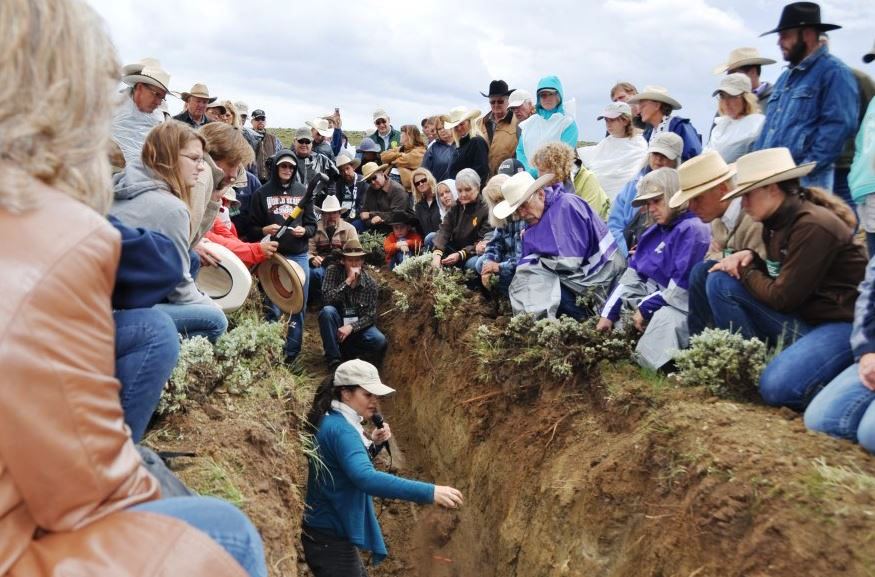Regenerative farming methods are emerging which are restoring native pollinators, generating waterways and revitalizing farmers’ incomes. A peer-reviewed study just published challenges many preconceptions about how food production systems should be managed.
The research—based in the Northern Plains of the United States—compared 40 regenerative versus conventional cornfields in terms of pest management, soil quality, yields and profit. Regenerative agriculture focuses on building soil health and fostering biodiversity while profitably producing nutrient dense food. Conventional cornfields were monocultures, with more focus on inputs, as is practiced on most cropping ground.
Key results found that insecticide-treated cornfields had 10 times more insect pests than regenerative fields, which replaced insecticides with plant diversity. Regenerative cornfields were nearly twice as profitable as conventional cornfields, even though yields were reduced in the regenerative fields. The researchers found profit was correlated with the organic matter of the soil, not corn yields.
Innovative farmers—backed by scientists and ecological restoration practitioners—have been developed a regenerative model of farm production that increases soil health, topsoil depth and biodiversity, all while producing nutrient-dense farm products more profitably. This trend was first documented in Storm Cunningham‘s seminal 2002 book, The Restoration Economy. Most observers mark the publication of that book from Berrett-Koehler Publishers as the point where a plethora of fast-growing regenerative industries and restorative scientific disciplines coalesced into a recognized global trend.
Little work has focused on the relative costs and benefits of novel regenerative farming operations, which necessitates studying in situ, farmer-defined best management practices. Here, we evaluate the relative effects of regenerative and conventional corn production systems on pest management services, soil conservation, and farmer profitability and productivity throughout the Northern Plains of the United States.
Regenerative farming systems provided greater ecosystem services and profitability for farmers than an input-intensive model of corn production. Pests were 10-fold more abundant in insecticide-treated corn fields than on insecticide-free regenerative farms, indicating that farmers who proactively design pest-resilient food systems outperform farmers that react to pests chemically. Regenerative fields had 29% lower grain production but 78% higher profits over traditional corn production systems.
Profit was positively correlated with the particulate organic matter of the soil, not yield. These results provide the basis for dialogue on ecologically based farming systems that could be used to simultaneously produce food while conserving our natural resource base: two factors that are pitted against one another in simplified food production systems.
To attain this requires a systems-level shift on the farm; simply applying individual regenerative practices within the current production model will not likely produce the documented results. These practices help build healthy and productive landscapes which are resilient to the effects of a changing climate.
The trend is global. In New Zealand, for instance a series of workshops is being offered for land managers and food producers interested in learning tools and methods to adopt profitable regenerative practices. Following a 5-month workshop circuit in North America and Australia, agroecologist Nicole Masters, will be touring New Zealand in April of 2018.
With increasing concerns around climate pressures, water quality and legislation; farmers equipped with soil health practices and reduced inputs put themselves ahead of the game. “As far as I’m concerned,” says Masters “the only risk is from not adopting soil health measures.”
Workshops and field trips will be held in Leeston, Canterbury, 5/6 April, Paengaroa, WBOP, 12/13 April, Esk Valley, HB, 19/20 April. The field trips will be held at Simon Osbourne’s Canterbury cropping operation; Te Arawa Farm, dairy operation, WBOP and Glenlands Farm in the HB, profiling long term cover crop and grazing success. The cost for the 2 day Integrity Soils workshop is $125.
Photo courtesy of Integrity Soils.
See full research results by Claire E. LaCanne and Jonathan G. Lundgren.

